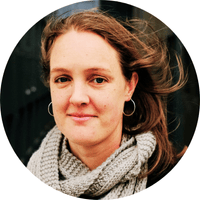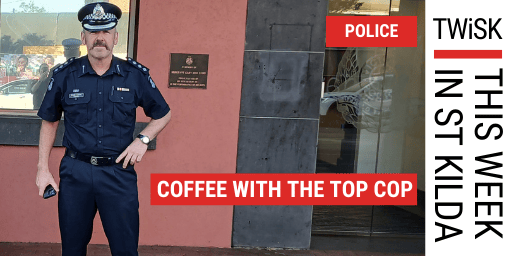“The moment he pointed a rifle at me, our five kids screaming in the corner, was the moment I decided to get outta there,” Helen Phillips tells me. It was 1974, Cootamundra, New South Wales, and her husband was a violent alcoholic. “He said ‘You’re done’. And I said ‘If you’re gonna do it, pull the trigger, cause you will never get another chance. I’ve had ya – you’re done yourself.” The familiar cycle of apologies came – “Oh baby, I’m sorry, please forgive me” – but she knew she had to leave. “No longer would my children watch me with black eyes. We were gonna make a new start.”
With fifty bucks in her pocket, Helen and her kids got on a train to Melbourne and fronted up at Travellers Aid, which immediately found her a post as a live-in nanny in Ashburton. On the second night there, her new boss came into her bedroom – “he expected me to sleep with him – this had been going on with every person who nannied.” With the phone in the house blocked, Helen went to the next-door neighbour for help; “she told me I’m about the tenth person, use my phone.” She called a helpline and within a few hours, a panel van pulled up, bundled her and her kids inside and took them to a Catholic-owned safe house in Robe Street, St Kilda.
“Robe Street was my education,” says Helen. “I’d known alcoholics before, but not drug addicts, people out of jail”. Helen began cooking, cleaning and fixing the place up, as well as listening to everyone’s problems, and soon enough the Catholics asked her to stay on and manage the place. To make ends meet, she also worked as a waitress at Pizza Maria on Fitzroy Street, and started her own business, Robe Removals, driving trucks full of furniture around town.
It was at Robe Street that she fell in love with one of the volunteers, Mark – who she describes as “very, very kind” – and in 1983 they married at Christ Church on Acland Street. “The Catholic priest wouldn’t do it ‘cause I’d been married before. So I said bugger ya – I’m going down the road to the competition!” The couple moved to Barkly Street and welcomed a daughter, Bronwyn, who added to the five children from Helen’s previous marriage. To some that would have been enough, but the couple felt they had more to give and began to foster children in need.

“Little Tommy* used to get picked up wandering Fitzroy Street, middle of winter in a nappy and singlet – the police brought him straight to us,” Helen remembers. There was Luca, who they got a bike for: “one weekend he went to visit his mum. He took the bike to show her, he was so proud. And she sold it for drugs.” Then there was Kelly-Anne, who rang Helen on her 21st birthday: “Mum told me that you looked after me when I was a baby, and you loved me, and I want to thank you.” Over the years the couple fostered over 30 children and saw firsthand the cycle of disadvantage – often, the children’s parents and grandparents had been fostered too. “I felt the system defeated itself,” says Helen, “because it provided temporary care, and then the kids, just when they were getting used to some sort of decent life, were thrown back into turmoil, every time.” Despite the sadness and difficulty of the job, Helen wanted to be that safe port in a storm. “I had a shit childhood,” she says. “Things coulda gone pretty badly for me, but they didn’t, because I worked hard. But not everybody can do that. Not everybody has the mental or physical capacity to get themselves out of things.”
Helen has also been a fierce advocate for her daughter Bronwyn, who was born with a range of disabilities. Determined that Bronwyn would have a mainstream education, she enrolled her in St Kilda Primary in the 1990s. “I caught them changing her in a corridor once, with classrooms either side,” she tells me, “Pulling her pants down in full view of everyone, because the changing hoist didn’t fit around the bathroom door.” Helen marched outside, got a hammer and nail from a builder and took the door off herself, then staged a sit-in in the principal’s office: “If you don’t sort this out now you’ll be on A Current Affair tonight.” A week later, it was done, and now the school has ramps, accessible entries and other features, thanks in part to those early battles. Once, Helen even rang Premier Joan Kirner at home to sort out an issue. “I said ‘Joan, are you cooking dinner? No? Good, it’s Helen Phillips here. I need to talk about something’…”

These days, Helen is often spotted around Balaclava, zooming about in her mobility scooter and chatting to everyone. She helps out at the Uniting Church Hub on the corner of Chapel and Carlisle Streets, where she and Bronwyn make Shower with Dignity packs for those in need. “St Kilda has changed so much since the ‘70s,” she tells me. “It’s become so gentrified; the general attitude now is ‘I’m alright – blow you’”. She is cheered, though, by the existence of drop-in centres like the Hub, that look after people in strife.
When Helen needed help, fresh off the train in 1974, St Kilda was there for her, and now she is there for others. She knows most of the area’s rough sleepers: “I go and grab us a coffee and something to eat, sit and talk to them,” she tells me. “Because there’s always a story, if you take the time to listen. I never look down on anyone.”
When I ask if she’d ever leave the area, she laughs. “One of my daughters was living down in Hampton, in an apartment overlooking the ocean. She said, ‘Why don’t you all move down here with Bron?’ So one day we went down to have a look. Bron was tense. Mark wasn’t excited. We drove down the highway, across South Road, and I said ‘I don’t know why we’re doing this – I hate this area! From the time we left Chapel Street, I’m thinking, why are we even bothering? I love St Kilda. I know so many people, seen so many sad things happen. But there are people here we’ve known for 50 years. Our kids have gone to school together, we’ve lived with them through their heartaches. I love St Kilda. It’s in my blood.”
*names of children have been changed

Storyteller: Isabel Robinson is a Melbourne writer and community development worker. Her words have been published in The Age, The Guardian and The Victorian Writer and she is currently working on a novel for middle grade readers with her husband, Stephen Sholl. She manages the City of Voices inclusive theatre group and lives in St Kilda. www.isabelrobinson.net







